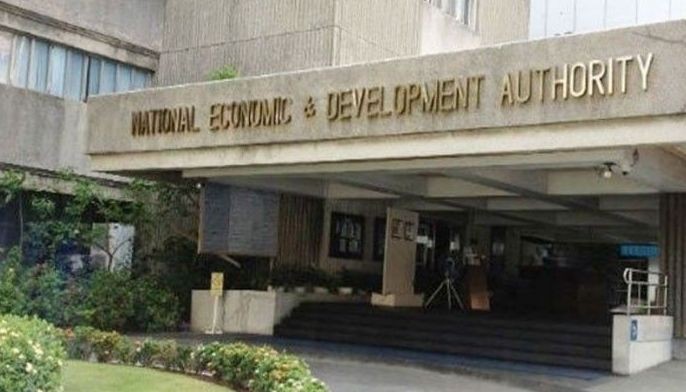MANILA, Philippines — The Philippines is expected to remain under a prolonged quarantine next year, with restrictions seen to be removed only in 2022, according to the National Economic and Development Authority (NEDA).
At a briefing of the Development Budget Coordination Committee (DBCC) late yesterday, acting Socioeconomic Planning Secretary Karl Chua said the revised economic performance projections for next year take into consideration the likelihood of a less strict modified general community quarantine (MGCQ) by next year as the rollout of a vaccine for COVID-19 looms.
With an extended quarantine, economic managers now see an even deeper economic contraction for 2020.
The DBCC said it now expects the economy to contract by 8.5 percent to 9.5 percent this 2020, worse than the previous estimate in July ranging from 4.5 percent to 6.6 percent.
This would also be the sharpest decline in the gross domestic product since 1984, when the economy contracted by seven percent.
Despite the lower projection, the DBCC said further relaxation of restrictions, made possible by improvements in the health care system, will keep the economy on track towards recovery.
“Thus, GDP growth is projected to bounce back to reach 6.5 to 7.5 percent in 2021 and 8 to 10 percent in 2022,” the DBCC said.
The Philippine economy remained in recession in the third quarter of the year with a GDP contraction of 11.5 percent. This was, however, an improvement from the 16.9 percent decline in the previous quarter.
Economic managers said they expect further improvements in the fourth quarter as the government proactively manages health risks posed by the COVID-19 pandemic.
The DBCC has also revised its inflation forecast this year, which is now ranging from 2.4 to 2.6 percent. Assumptions for the price of Dubai crude oil were also revised to $40 to $42 per barrel from the previous estimate of $35 to $45 per barrel.
Foreign exchange rate assumption for 2020 was also adjusted to a lower range of P48 to 50 against $1 from the previous estimate of P50 to P52.
In line with recent trends in global trade, the growth assumption for goods exports is maintained at -16 percent for 2020, while growth of goods imports for 2020 was further adjusted to -20 percent from -18 percent.
The DBCC said services exports and imports in 2020 are expected to contract further by 21.4 percent and 19 percent, respectively.
Thankful
With over P83 billion allotted for the purchase of vaccines and test kits for COVID-19, the country is on track to address the raging health crisis, vaccine czar Carlito Galvez Jr. said on Wednesday as he thanked the Senate and the House of Representatives for legislating appropriate measures.
“We are very thankful that the Senate and Congress are very supportive of the vaccines purchasing program of the President by giving more or less P50 billion funds in the GAA (General Appropriations Act). I believed that there is also P33 billion. Over and above, (Finance) Secretary (Carlos) Dominguez has allotted through the ADB (Asian Development Bank) and the World Bank more or less P83 billion,” Galvez said at the weekly Kapihan sa Manila Bay virtual forum. He said P33 billion of the amount would be for vaccines and testing kits.
He added Metro Manila mayors also want to chip in to help the government purchase vaccines for COVID-19. He also cited the initiative of the private sector led by presidential adviser on entrepreneurship and Go Negosyo founder Joey Concepcion to donate vaccines to the government.
“During our talk with the mayors of NCR (National Capital Region), they said they are more than willing to help, to put up money to unburden the national government because vaccinating 110 million people is a huge task for us,” Galvez said.
He said the Australian ambassador had also expressed willingness to donate some funds to the Philippine government.
“We have met with the Australian ambassador and they are willing to donate some funds for the advance procurement of the vaccines,” he said, adding that negotiations with China for vaccine supply are ongoing.
Galvez said the government is hoping to get 50 million doses next year.
He said the tripartite agreement entered into by Concepcion’s group with AstraZeneca is very timely.
“That is why the tripartite agreement is very welcome to us because that would assure us of vaccines. There are many limitations to the government. AstraZeneca has assured vaccine for us. But the tripartite agreement is not only exclusive to AstraZeneca; we can also do it with Pfizer and Synovac,” Galvez said.
He stressed the government would make sure that vaccines purchased were of proven efficacy so as not to endanger public health.
“We have to vaccinate all the Filipinos, rich or poor, without exemptions to enable the economy to recover. The vaccination will be on geographical basis which means that priority will be given to those areas affected by the virus,” Galvez said.
Science and Technology Secretary Fortunato dela Pena, meanwhile, cited private sector help in boosting the country’s COVID-19 diagnostic testing capabilities, especially through research and development.
Dela Peña also reaffirmed his department’s support to Marikina City-based health technology startup Manila HealthTek Inc., headed by Dr. Raul Destura, which is developing diagnostic test kits for infectious diseases.
“The Local COVID-19 kit is an example of developing local manufacturing capability enhancement funded supported by DOST which has significantly reduced the cost of the test,” Dela Peña said. – Mary Grace Padin, Jose Rodel Clapano, Rainier Allan Ronda


